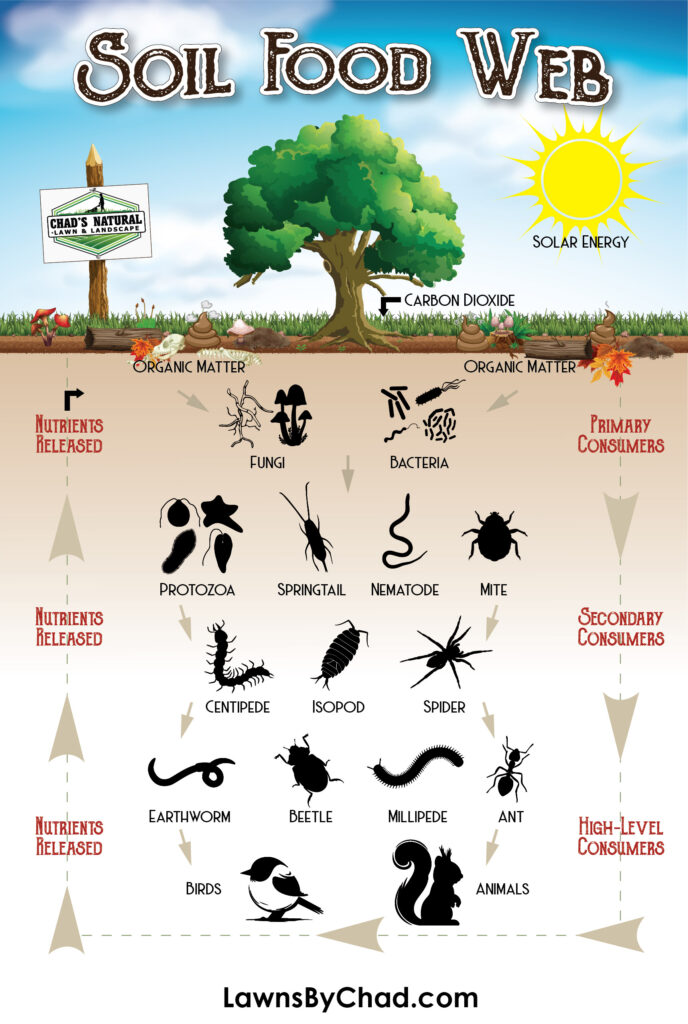Soil Biology and the Soil Food Web: The Secret to a Thriving Lawn
A lush, green lawn starts from the ground up—with soil biology playing a crucial role in its health and vitality. Beneath the surface, a vast ecosystem known as the soil food web works to maintain fertile, well-structured soil that nourishes your grass naturally. Understanding and supporting this underground network is the key to achieving a more resilient and sustainable lawn.
What is Soil Biology?
Soil biology refers to the diverse community of living organisms that inhabit the soil, working together to break down organic matter, cycle nutrients, and improve soil structure. These organisms include:
- Bacteria – Decompose organic matter, recycle nutrients, and help suppress plant diseases.
- Fungi – Form beneficial relationships with plant roots, enhancing nutrient and water absorption.
- Protozoa – Feed on bacteria, releasing nutrients that plants can easily absorb.
- Nematodes – Tiny worms that aid in pest control and nutrient cycling.
- Arthropods (e.g., insects, spiders, mites) – Contribute to organic matter decomposition and soil aeration.
- Earthworms – Improve soil health by enhancing nutrient availability and boosting soil structure through their castings.
The Soil Food Web: Nature’s Nutrient Cycle
The soil food web is a self-sustaining system where soil organisms interact, feeding on organic material and each other. This continuous process releases nutrients essential for healthy root growth, improves aeration, and increases the soil’s ability to retain moisture.
A well-balanced soil food web reduces reliance on synthetic fertilizers and pesticides, fostering a more eco-friendly and naturally resilient lawn.

How to Support Healthy Soil Biology for a Stronger Lawn
To maintain a thriving soil biology and enhance the soil food web, consider these sustainable lawn care practices:
- Incorporate Organic Matter – Compost, mulch, and grass clippings feed beneficial microbes.
- Limit Chemical Use – Overuse of synthetic fertilizers and pesticides can disrupt microbial populations.
- Aerate the Soil – Enhancing oxygen flow promotes microbial activity and root development.
- Encourage Earthworms – Maintain moisture and organic-rich soil to support these natural soil builders.
By nurturing soil biology, you create a healthier, more resilient lawn that requires less maintenance and remains vibrant throughout the seasons. Investing in the soil food web means investing in long-term lawn health—naturally!